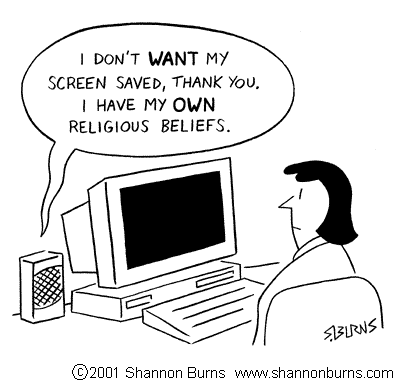The Hands are Esau’s Hands
Among the hats I wear is one that says “Committee Two” on the brim. In the Diocese of Connecticut everyone knows that Committee Two is what is known elsewhere as the Board of Examining Chaplains. We are the gatekeepers who examine seminary graduates to see whether the paper the seminary gave them indicates real accomplishment or an inadequate seminary. Often we find ourselves more critical of the seminaries than the seminarians.
Be that as it may, the latest set of General Ordination Examinations (GOEs to the knowledgeable) have just come in and the national board and local Committee II members have been in a flap over one candidate’s incredible mis-spellings. What does it indicate when a candidate writes “profits” for “prophets,” “March” for “Mark,” and “Bart Timeus” for “Bartimeus”? Can someone really graduate from seminary and not known a profit from a prophet?

Unfortunately, our most profound theologians are also, often, Luddites. They have moved on from quill pens to typewriters and even, in many cases, computers, but they can’t match my seven-year-old grandson when it comes to computer savvy. Neither can I, but I know what the problem is with Candidate X.
The problem is that Candidate X used a dictation program to answer the examination questions and – the critical failure – didn’t proof read. I happen to be computer savvy enough to use a dictation program myself and I know the sometimes bizarre results you can get from speaking words to a computer. I know that if you use such a program you must – must, I say – proof read carefully.
I dictate, for example, a weekly letter to our scattered children and note for their pleasure and mine some of the errors that result. Herewith a sample:
I said: always
The computer heard: all was
I said: Toshiba netbook
The computer heard: of Sheba that book
I said:in Bantam
The computer heard:invent him
I said: baptism
The computer heard: back to some
I said: Yale
The computer heard: yell
I said: the Mississippi period of
The computer wrote: the Mississippi. Of
Now, that sounds pretty klutzy and we can laugh at the foibles of modern technology, but there was also the day I said “bouillabaisse” – a word concerning the pronunciation and spelling of which I am extremely insecure – and, without any hesitation, the computer put down “bouillabaisse.” I have to assume that’s correct!
How far away is the day when the computer’s theology is also better than mine?
So we know why the bizarre misspellings occurred; what we don’t know – the frightening thing – is whether Candidate X proofread or not! Is it possible that the Candidate DID proofread with care – and didn’t notice?
What do the candidates know and when do they know it? It’s harder and harder to tell. Most exams in recent years have been given on an “open book” basis. We didn’t insist that they memorize, but we wanted them to be able to find and organize the material they needed. The result was that candidates who were best at using “google search” got the best marks. So this year, exams were “closed book.” Closed book, but you can’t forbid a candidate to use a computer because most of them never learned to write a readable hand. And we can’t forbid them to use spellcheck because most of them can’t spell. And once the computer is in the room, how do you put limits on what it can do? Where does the candidate leave off and the computer begin?
When Isaac was old, Jacob brought him savory stew and fastened lamb’s skin to his neck and arms so that if his blind father felt him, he would feel like his hairy brother Esau. “The voice is Jacob’s voice,” said poor old Isaac, “but the hands are the hands of Esau.” Like Isaac of old, I am no longer sure with whom I am dealing. The hands are the hands of Candidate X, but the voice is the voice of the computer!
 Christopher L. Webber
Christopher L. Webber
Here is the computer theology (http://computertheology.org). Regards.